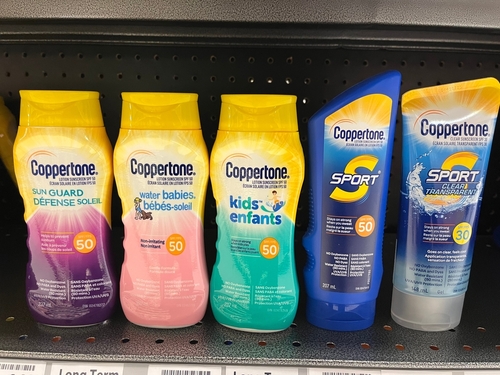Sunscreen litigation: just in time for summertime. Coppertone faces a false advertising suit for marketing its sunscreen for the face differently than the sunscreen for the body, despite both sunscreens using the same formulation. Who is burning who?
Case Facts
Tonya Akes filed suit in federal court in Connecticut alleging false and deceptive advertising by Beiersdorf, Inc, manufacturers of Coppertone brand sunscreen. The complaint alleged that the marketing of Coppertone Sport Mineral Face sunscreen was deceptive because it implied that the product was a specific formulation for the face. The facial sunscreen sold for twice the price of a similar sunscreen for the body, but the formulas were identical.
Packaging Broken Promises?
Beiersdorf did not argue that there were differences in the formulas of the two products. However, it asserted that the product claims were true. On the packaging of the facial sunscreen, for example, there were no claims that it was specifically formulated for the face. (It did claim that the sunscreen will not run into the wearer’s eyes.) Furthermore, it argued that the plaintiffs did not look at the body version of the sunscreen before purchasing the face version, and hence the burden of paying for the face sunscreen is on the plaintiff.
Formula for an Effective Consumer Survey
This is not the first claim to arise from a product that has the same formulation as another but is marketed and sold differently. When products have different packaging but the formulas are the same, whether the plaintiffs have a case often comes down to consumer perception and the precise claims that those plaintiffs are making.
Here, the plaintiffs did not look at the body sunscreen, which made similar anti-streaking claims to those listed on the facial sunscreen. The body sunscreen also listed, on the front of the package, that its active ingredient was zinc oxide. Whether that might be deceptive, according to regulatory bodies, often turns on a measure of consumer perception. In this case, which is still pending, it would be possible for either the plaintiff or the defendant to use consumer survey evidence to show whether consumers were misled by the sunscreen’s packaging.
MMR Strategy Group designs and conducts survey research for advertising claims, to provide evidence in false advertising matters, and to help companies understand their markets. Contact us today.
Update to Coppertone Case:
A Connecticut court rejected the motion to dismiss this case, due to the prominence of the word “FACE” on the sunscreen bottle. While Coppertone’s claims about the oil-free formulation and not running into eyes were not addressed in the ruling, a federal court will decide whether consumers take the word “FACE” at face value. This update underscores the importance of substantiating claims and conducting consumer research prior to releasing new iterations of products, even those with the same formulations. (https://www.adlawaccess.com/2023/08/articles/in-your-face-connecticut-district-court-denies-motion-to-dismiss-in-coppertone-face-sunscreen-false-ad-case/)
